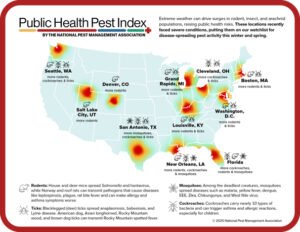Is WGS a regular part of your environmental monitoring program? If not, it’d be a good idea to jump aboard this fast-moving train sooner rather than later.
The infant formula crisis of 2022 led to FDA’s requirement to conduct whole genome sequencing (WGS) on all Salmonella and Cronobacter spp. isolates recovered from an infant formula facility inspection. In early January, FDA issued a draft guidance on low-moisture RTE foods stating that while pathogen isolates can be characterized by different methods, WGS is “considered the most discriminating method.” And in late January, the European Commission went even further, requiring that EU countries conduct WGS on Salmonella enterica, Listeria monocytogenes, Escherichia coli, Campylobacter jejuni, and Campylobacter coli isolates collected as part of any foodborne outbreak, and report the results to the European Food Safety Authority.
Are you seeing a trend? While these regulations focus on specific industry segments, they are harbingers for the full food industry, with WGS not only the way of the future, but the ever-evolving way of today.
So, to reiterate our opening statement, we recommend you jump aboard sooner than later. There is an evolving expectation that more intense analyses be conducted to get to the source of an outbreak, to expand detection and recall to all relevant foods and facilities. While WGS does expand the ability to link more foods and facilities, the key word is relevant, thus making WGS both a bane and potential boon.
But let’s take a side trip here to provide some information about how WGS expands detection. When pathogens are collected by public health or regulatory agencies from foodborne outbreaks, sick individuals, contaminated food products, and environmental sources, the genome sequences, attained through WGS analysis, are archived in the open-access genomic reference database, GenomeTrakr. The database provides for real-time comparison and analysis across time and space to link pathogens found in one food or facility to those found in other foods and/or facilities and in those with illness wherever and whenever previously detected.
Given that, WGS can feel like a negative development because a pathogen previously detected in your facility could be linked to a current outbreak associated with your facility, making it a resident strain; or with another outbreak, implicating your facility with what may have seemed to be a separate outbreak.
Despite that seeming negative, it is just such linkage that makes WGS a positive evolution which food establishments should adopt. It is important to keep in mind that simply finding a matching strain does not mean your product caused illness. It is always important to make sure that the epidemiology also matches up with likely causes.
Not only can it speed foodborne illness outbreak investigations and reduce illnesses and deaths by more quickly linking related contamination, it can help keep facilities from going down a wrong rabbit hole in seeking the source of a contamination. Even if you detect a resident strain, it can be a positive event, as it enables you to conduct a root cause analysis to find the problem and conduct remediation to address it – before a regulatory agency does or it causes an outbreak.
At this time, the use of WGS is a recommendation from regulators as a best practice; in most cases, it is not yet a requirement. Because of that, some companies prefer to keep their heads in the sand out of fear of potentially discovering a resident strain. Some are being told by their lawyers to put off its use as long as possible, so the test can’t be subpoenaed and discovered by FDA. But in TAG’s extensive experience, we have never known FDA to do that, so no food establishment should let fear be a reason for not managing risk as thoroughly as possible. If there is a fear of anything, it should be that of causing severe illness or even death because you did not manage risk as thoroughly as possible.
If you would like assistance in determining how and where WGS can best apply in your business, give TAG a call. Our food safety experts can help!
_________________________
FDA and RFK Jr. With the news coming in on Robert F. Kennedy Jr. being confirmed as secretary of the Department of Health and Human Services as we were finalizing this article, we wanted to provide a brief statement on the confirmation. While it’s too early to make any real assessment of the industry impact, we will be keeping a close watch on all the regulatory developments to both keep you informed and to provide our insights, analysis, and recommendations.
All written content in TAG articles, newsletters, and webpages is developed and written by TAG experts, not AI. We focus on the realities and the science to bring you the most current, exacting information possible.





